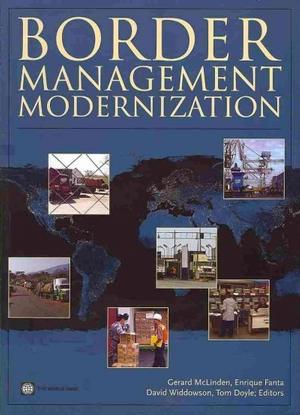
12 May MARCH Border Management Modernization
Border Management Modernization
Edited by Gerard McLinden, Enrique Fanta, David Widdowson & Tom Doyle
Border clearance processes by customs and other agencies are among the most important and problematic links in the global supply chain. It takes three times as many days, nearly twice as many documents, and six times as many signatures to import goods in poor countries than it does in rich ones. Delays and costs at the border undermine a country’s competitiveness, either by taxing imported inputs with deadweight inefficiencies or by adding costs and reducing the competitiveness of exports.
As countries have come to realize the importance of trade in achieving sustainable economic growth they have progressively lowered tariffs, established regimes to encourage foreign investment and pursued opportunities for greater regional integration. This progress has, however, been undermined by the high costs and administrative difficulties associated with outdated and excessively bureaucratic border clearance processes which are now often cited as more important barriers to trade than tariffs. Inefficient border processing systems, procedures, and infrastructure result in high transaction costs, long delays in the clearance of imports, exports, and transit goods, and present significant opportunities for administrative corruption. They essentially undermine a country’s competitiveness in the international marketplace.


Sorry, the comment form is closed at this time.